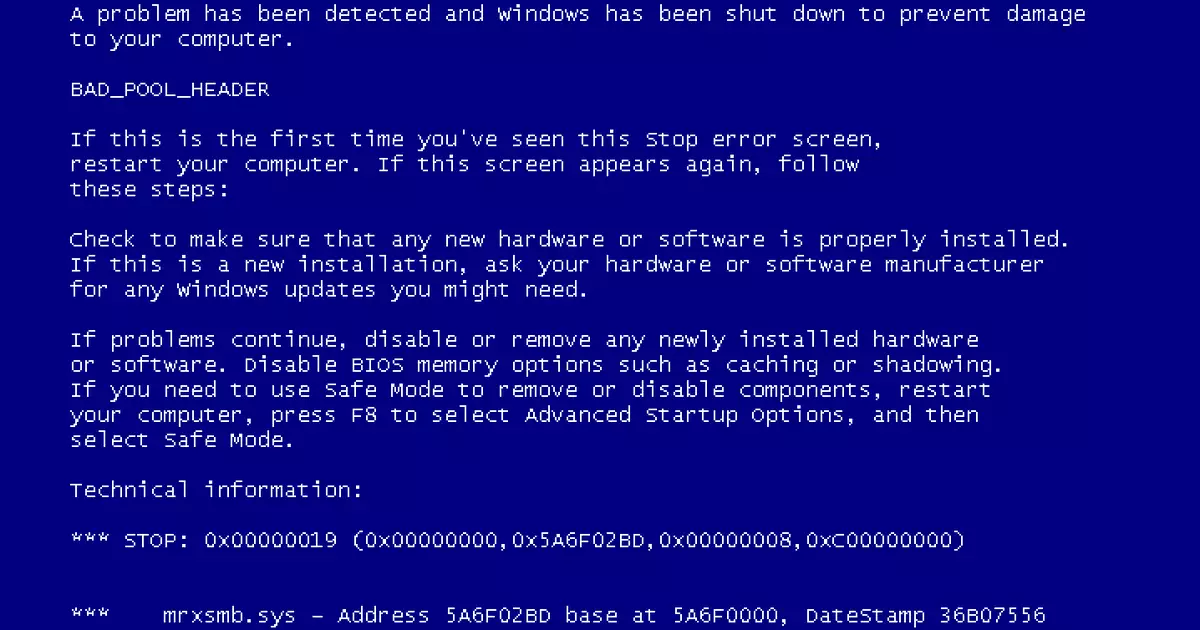There was a time, perhaps not so long ago, when the world felt a peculiar camaraderie in shared frustrations. Picture this: a night at a music festival in the UK, nestled within a sleeping bag, lulled by the distant sounds of merriment. Suddenly, you hear it—a low rumble swells into a crescendo of voices unified in collective exasperation, shouting one absurd word: “Bollocks!” This moment encapsulates a powerful truth about human experience; we often find solace in the shared frustrations and tribulations of life. It’s a tradition that seems utterly ridiculous—yet undeniably charming.
This same cathartic release echoes through the realms of technology. When users encounter the infamous Blue Screen of Death (BSOD), their collective groan resonates across living rooms and offices alike. This iconic error screen, a symbol of digital catastrophe, has somehow become a staple of the Windows experience for decades. Yet, it appears that the tides of change are rolling in, as Microsoft has chosen to retire the BSOD, replacing it with a new Black Screen of Death (BlackSOD), a decision met with a mix of intrigue and nostalgia.
The Evolution of an Icon
Microsoft’s declaration about the BSOD’s redesign speaks volumes not just about technical innovation, but also about the culture of frustration surrounding technology. The decision to transition to a BlackSOD stems from a desire for clarity in error reporting, as stated by David Weston, Microsoft’s VP of enterprise and OS security. His insight about delivering “better information” highlights a critical shift in how technology companies respond to user experiences. Instead of resigning to the chaos of errors, they aim to empower users with understanding and solutions.
However, while clarity is essential, one cannot ignore the bittersweet nature of this transformation. The blue screen has been around for roughly 40 years—a digital relic that, ironically, has served as a unifying cry for countless users who have felt the sting of technological failure. The BlackSOD may eradicate the historical charm, yet the legacy of the BSOD reminds us of the inevitable failures we encounter on our technological journeys. There’s something profoundly communal about this experience; it’s a reminder that even in our highly advanced world, we face malfunctions, frustrations, and the urgency of fixing what’s broken.
Broader Implications in a Digital Age
The evolution of the BSOD is more than mere aesthetics; it reflects a response to pressing realities in cybersecurity and organizational resilience. As highlighted by The Verge, the redesign is likely a strategic response to issues like the Crowdstrike outages that served as wake-up calls for organizations. In an era where technological glitches can have ripple effects on productivity and security, moving from a reactive to a proactive approach is crucial. It’s a realization that resonates deeply within an increasingly connected and vulnerable landscape.
Yet, amid the technical evolution, one has to ponder: do we lose something inherent about shared frustrations as we streamline and sophisticate our understanding of errors? In a time where annoyance slowly morphs into amusement— where earlier painfully frustrating experiences are transformed into folklore— do we risk losing a part of our humanity?
Reflections on Corporate Responsibility
Beyond the technical shift, Microsoft’s recent decisions raise questions surrounding corporate responsibility. The dichotomy of launching a new error reporting system while simultaneously venturing into military tech partnerships shows a concerning trajectory where profit sometimes overshadows ethical considerations. With a staggering profit margin of $88 billion for the fiscal year, one cannot help but wonder if such success tempers the empathy that should accompany technological advancement.
As we venture into a future dominated by AI and advanced computing, it is crucial to maintain a balance between innovative progress and ethical accountability. The journey from the whimsical memories of the BSOD to a more streamlined—but perhaps soulless—BlackSOD could serve as a poignant reminder: as technology evolves, we must ensure that our core values and collective experiences remain intact. After all, amid the digital chaos, it’s these very experiences that connect us, turning personal irritations into shared laughter and unique cultural narratives.

